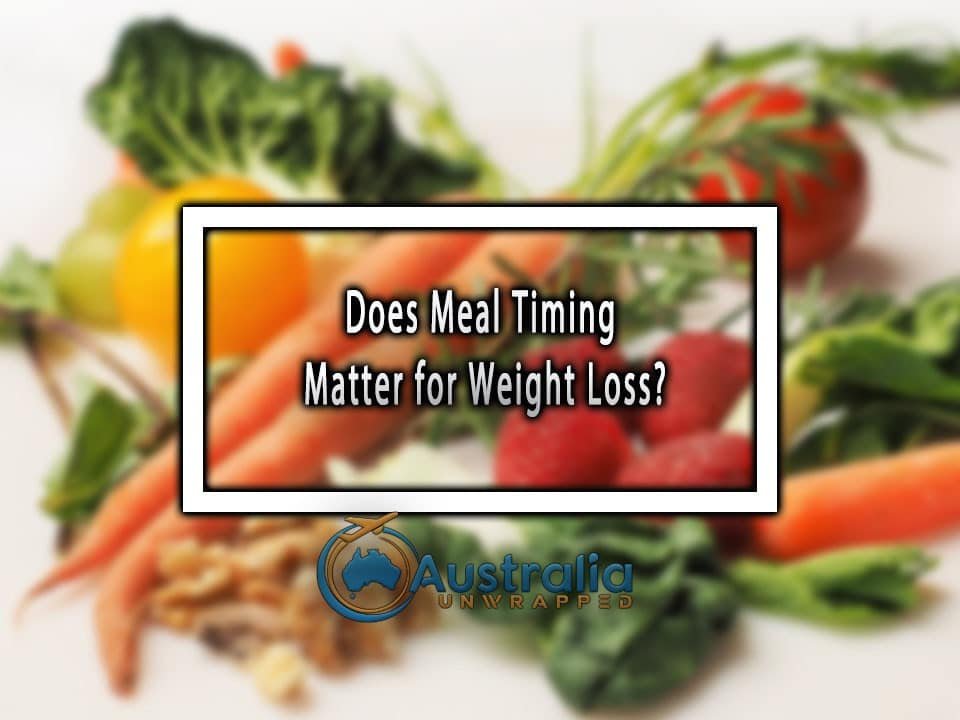Does Eating At Regular Intervals Matter for Weight Loss?
Does meal timing matter for weight loss? Asking this question on Google can yield a confusing mixture of results (like most weight loss information). However, this has been a question that is very frequently asked about weight loss. You’ve probably heard of hardcore dieters swearing that they don’t eat after 7 PM or they don’t eat until a certain time in the morning. But, is this necessary for weight loss?
There are two things we need to be aware of here. First is the timing of the meals (i.e. not eating after a certain time, eating a certain time before working out, etc.) and the frequency of meals. Some people thrive on splitting their meals into five or six small meals throughout the day, whereas others thrive on methods like intermittent fasting.
In intermittent fasting, you go as long as possible between dinner and breakfast. With intermittent fasting, people fast for about 12-16 hours, having just a few hours to eat all their meals. This particular fasting trend has taken the fitness world by storm, with many dieters swearing by it to lose weight. Intermittent fasting was one of the biggest diet trends of 2019 and continues to soar in popularity.
The reason why there’s so much conflicting evidence for meal timing and weight loss is that there are so many external variables. For example, your sleep cycle and workouts also affect how you should time meals. Not getting enough sleep can cause people to overeat or have more frequent meals. For others, they may have to eat a few hours before working out to avoid burnout.

1. Why Scheduling Meals is Important
However many meals you want to eat or whatever diet trend you’re on, one thing remains clear- eat at the same time every day. As humans, we are creatures of habit. We like structure and routines in our lives. This means we function better when we eat and go to bed at the same time.
We all possess and are run by an internal biological clock. Biological clocks are run by chemicals and hormones in the body. This is what ensures we get up at a certain time without an alarm. This also affects not just sleeping and waking up times, but how often we need to eat.
Following an erratic meal, the schedule can wreak havoc with your biological clock and hormone regulation. This affects important functions like fat burning and appetite which are both important for weight loss.
Another reason why diet trends like intermittent fasting are praised is that it limits insulin spikes. Insulin is the hormone that digests carbohydrates and turns them into glucose for energy. If you’re eating all the time, insulin is being released all the time and your body may become insulin resistant. This means that your body won’t respond to insulin as well as it should to digest food. This eventually leads to diabetes and can be a huge hurdle for weight loss.
Generally, the more meals you have throughout the day, the more often you release insulin. This is even more so if your frequent snacking consists of sweet or sugary foods. So, the longer you go between meals, the less you release insulin. Releasing insulin too often has also been linked with slower fat burning.
Read More:
Why most People struggle with Self-Development
2. Should You Eat at Night?
One thing that a lot of scientists seem to agree on is that it’s not good to eat too close to your bedtime. So, whether you should eat at night or not depends on what time you go to bed. If you’re a night owl, you can eat at night. If you’re an early bird, it’s best to have your dinner early. A rule of thumb is to keep at least a 2-hour window between your last meal and bedtime.
Our bodies take at least 2-3 hours to digest the food we’ve eaten, so falling asleep while food is being digested isn’t great for weight loss. What about snacking? Snacking is also not a great idea at night. While it may seem tempting to have a midnight snack after randomly getting up at night, it can contribute to weight gain.
3. What The Studies Say
While there is a lot of conflicting evidence, there is more research to back up that eating more in the morning may be better for you. While it’s not set in stone (e.g. no carbs after 7 pm), smaller, protein-packed meals at night tend to be better. This is because proteins keep us more satiated, which is great for surviving the night until breakfast.
In one study, researchers compared two groups of dieters. The first group ate 50% of their daily calories at breakfast, while the other group ate 50% of their calories at night. The results after 12 weeks showed that the first group (big breakfast group) had higher weight loss, lower cholesterol levels and better blood sugar regulation.
This kind of makes sense because you’re more active during the first half of the day, so you need more calories. Eating more when you’re more active and burning more calories, means that there are fewer calories left over for storage. The result? Easier time losing weight and body fat.
The Bottom Line
What can we learn from all this? Here is a sum up of what was discussed so far:
- It’s better to eat most of your calories in the morning when you’re more active than at night. Not only does it make it easier to lose weight, but you’ll also have a better time sleeping.
- Refrain from midnight snacking or eating too close to your bedtime. Leave at least 2-3 hours between your last meal and your bedtime. It takes several hours for food to be digested, so falling asleep can disrupt it. Midnight snacking has been linked to weight gain.
- Try to minimise snacking as much as possible. If you do snack, stick to a high protein, low-calorie foods like eggs and hummus or other healthy vegetables (carrots, peppers, etc.)
The bottom line is that it does matter when we eat because our bodies have their own biological clock (natural circadian rhythm). Eating at odd hours or inconsistently can lead to poor regulation of hormones and blood sugar. The result will be a difficulty in losing weight and poor metabolism.
Also Enjoy: Three Tips for Sharper Brain
Also See : Actual Possibility That the Human Race Will End: The 6th Extinction
32 Ideas for Lucrative Side Hustle
Fun Fact
Is 10am too late for breakfast?
It is a good idea to eat breakfast at least forty-five minutes after waking up, because then it messes up your eating schedule for the rest of the day. Adalbert F. You should not eat breakfast too late since you are breaking your fast from the night.










